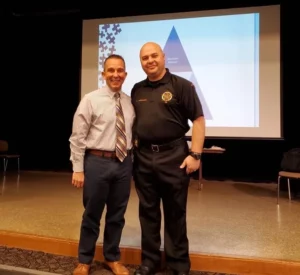According to the National Autism Association, this has been the most tragic six weeks they have seen in the autism community since they began documenting autism wandering fatalities. Law enforcement strategies for handling wandering events involving children with autism can be critical for ensuring their safety.
Here are some effective strategies:
Training and Awareness:
- Autism Training: Officers should receive specialized training on autism spectrum disorders (ASD), including understanding the common behaviors and challenges associated with ASD.
- Recognize Signs: Officers should be trained to recognize signs of autism, such as lack of eye contact, repetitive behaviors, or sensitivity to sensory input.
Community Engagement:
- Establish relationships with families of children with autism and local autism support organizations.
- Law enforcement agencies should hold regular community meetings to discuss safety concerns and provide information on wandering prevention strategies.
Proactive Measures:
- Law enforcement agencies should implement voluntary registration programs where parents can provide information about their child, including a photo, communication preferences, and any specific triggers or behaviors.
- Encourage the use of GPS tracking devices or wearable technology to help locate children quickly if they wander.
Response Plans:
- Law enforcement must develop and implement rapid response protocols specifically for wandering incidents involving children with autism.
- Utilize available information from registration programs to quickly identify and locate the child.
Search Techniques:
- Understanding behavior patterns of children with autism is critical. Law enforcement must recognize that children with autism may seek out certain environments, such as water sources, playgrounds, or places they find interesting.
- In addition, officers should use methodical search techniques, such as grid searches, to thoroughly cover areas where the child might be.
- Engage the community in search efforts, as local residents may have valuable information about the child’s last known location.
Collaboration with Specialists:
- Involve experts who work with autism who can provide insights into the child’s behavior and effective communication strategies.
Post-Incident Support:
During my law enforcement career I followed up with every family after a wandering/elopement event. We would review our response and identify areas for improvement in future incidents. Providing families with supports and resources after the incident. This may include counseling or referrals to autism support organizations.By combining training, community engagement, proactive measures, and specialized response plans, law enforcement can effectively address wandering events involving children with autism and ensure their safety.





